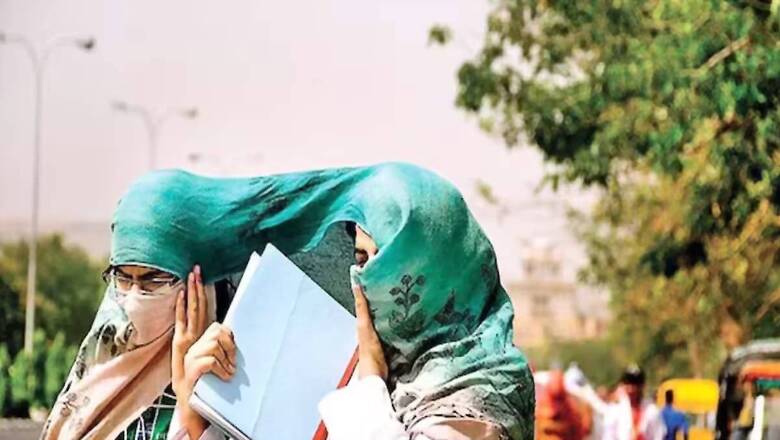
views
The temperature in Delhi has been rising and recently, it reached above 44 degrees Celsius. According to the India Meteorological Department (IMD), a red alert has been issued due to the severe heat wave conditions across the city and its surrounding area. This can pose a serious health risk, particularly for infants, elderly and those who already have existing health problems. But there are many people who are still unaware about the impacts of heat on their bodies.
Wandering outdoors during peak heat hours is strongly discouraged and keeping yourself hydrated with water, fruits, vegetables, buttermilk, lemonade and coconut water is advised. Failure to take proper measures to cool down the body can lead to serious consequences. In this article, we will understand the effects of extreme heat on the human body, especially when temperatures cross 45 degrees Celsius.
- Sunburn happens when an individual’s skin is exposed to too much sunlight, specifically its ultraviolet (UV) rays. Continued exposure also increases the risk of skin cancer as it damages the DNA in your skin cells. Sweating excessively can also cause discomfort and itchy marks on the skin. It is important to protect your skin by wearing appropriate clothing and applying sunscreen during daytime.
- Extreme heat can make it difficult to think clearly and can affect a person’s mental performance. Many feel uneasy on hot days and extended exposure can have a negative impact on mental health. Hyperthermia, caused by excessive heat, can damage the brain, heart, kidneys, muscles and could lead to long term health issues.
- High temperature also worsens air quality, which in turn can irritate an individual’s respiratory system. It can also intensify conditions such as asthma and chronic obstructive pulmonary disease (COPD). The heat increases the spread of allergies, which further affects the overall health.
- Extreme heat puts extra stress on the cardiovascular system, due to which blood vessels expand and the heart pumps harder to increase blood flow. This is particularly risky for individuals with a past history of cardiovascular diseases and elders. Those with hypertension are at higher risk during heatwaves.
- In extreme heat, the body loses water rapidly due to continuous sweating in an effort to cool down. Without enough liquid intake, it can lead to dehydration. Signs of dehydration include dry mouth, reduced urination, fatigue and dizziness. It is important to stay hydrated by drinking water and other fluids regularly during hot weather.


















Comments
0 comment